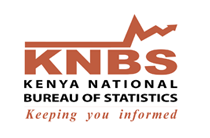With its population of about 45 million people, Kenya is one of the most important African countries. In particular, the Eastern Africa side on the coast of the Indian Ocean is certainly more developed than the rest of the continent. Kenya is, in fact, a well structured country with new investors focusing on local industries.
The most attractive industries in Kenya include:
- Agriculture – 23% of Kenya’s overall GDP value
- Manufacturing – 19% of Kenya’s overall GDP value
- Services – 51% of Kenyan total GDP value
*All statistic data are from a Kenyan financial and economical report conducted in 2011.
Other Kenyan Industries That Are Achieving Great Results
However, the Kenyan economy includes also other sectors, that are also well developed in this country: tourism, financial institutions, gambling facilities, tobacco industries. In particular, it seems that Kenya is trying to work on its internal laws in order to facilitate the expansion of such industries. Poker laws in Kenya permit gamblers to access poker games in the internet, which is the most chosen tool to access direct poker games. Anyways, gambling in Kenya is legal since 1966, soon after the national independency from the UK.
In Kenya over 50% of the population can access to the internet – a really high percentage compared to other African countries.
Casinos In Kenya & Kenyan Gamblers
Kenya has a total of 13 land based casinos in 4 cities all around Nairobi, the most modern and largest city in Kenya. Even though land based casinos are meant to be tourist attractions, many Kenyans like to go and play as well. In fact, Nairobi is a wealthier city than the rest of the country and this means that more Kenyans can afford to play gambling games.
But even with its overall 121 table games and 720 slot machines, Kenyan land based casinos are not enough for the most refined gamblers. That’s why skilled poker players in Kenya prefer to find more games in the internet.
More Table Games In The Internet or Kenyans
As a matter of fact, this leads to an increasing number of online gamblers in Kenya, aligning this country to the world’s most advanced countries where online gambling is already a strong reality.
Table games are some of the most appealing casino games with a long history and an evergreen charm that only pro poker players can describe in its entireness. Actually, becoming a skilled poker player is a hard job, but also a great way to improve personal skills like memory, visual reflexes, prediction.
On https://www.australia-casino.org/poker poker players can find an excellent list of 100% safe and regulated international virtual casinos, where poker along with other important table games is the “king of the casino”.
Poker Games At Australia Casino
There are many reasons to choose to play poker games, not only for Kenyans but also for everyone else. Actually, Australia Casino is a fully regulated and licensed platform which offers the best and safest casino environments you might find on the net.
Australia Casino puts much effort in finding casinos whose high standards meet severe requirements of security. This encourages more poker players to visit Australia Casino without hesitation and after testing the excellent and helpful customer service as well as trying free and real play games, most are greatly satisfied.
 The foreign investment surveys are intended to provide information required for compilation the Balance of Payments (BOP), International Investment Position (IIP) statistics and assessment of investors’ perceptions of the investment climate.
The foreign investment surveys are intended to provide information required for compilation the Balance of Payments (BOP), International Investment Position (IIP) statistics and assessment of investors’ perceptions of the investment climate. 
 The country’s real Gross Domestic Product (GDP) is estimated to have expanded by 5.5 percent during the second quarter of 2015 compared to 6.0 per cent in the same quarter of 2014. The quarter was characterized by a fairly stable macroeconomic environment supported by a slowdown in inflation and decline in interest rates. During the review period, the country experienced good rains that led to improved agricultural activities despite suppressed demand of key agricultural exports.
The country’s real Gross Domestic Product (GDP) is estimated to have expanded by 5.5 percent during the second quarter of 2015 compared to 6.0 per cent in the same quarter of 2014. The quarter was characterized by a fairly stable macroeconomic environment supported by a slowdown in inflation and decline in interest rates. During the review period, the country experienced good rains that led to improved agricultural activities despite suppressed demand of key agricultural exports.  Kenya National Bureau of Statistics hereby releases Consumer Price Indices (CPI) and inflation rates for September, 2015. These numbers have been generated using data collected during the second and third weeks of the month under review. The prices were obtained from selected retail outlets in 25 data collection zones located in Nairobi and 13 other urban centers.
Kenya National Bureau of Statistics hereby releases Consumer Price Indices (CPI) and inflation rates for September, 2015. These numbers have been generated using data collected during the second and third weeks of the month under review. The prices were obtained from selected retail outlets in 25 data collection zones located in Nairobi and 13 other urban centers.
 Golden rule: The ball with the number of times drawn at or below the minimum threshold is the one most likely to come up in the next upcoming draw. The vice-verse theory also works accurately.
Golden rule: The ball with the number of times drawn at or below the minimum threshold is the one most likely to come up in the next upcoming draw. The vice-verse theory also works accurately. Kenya National Bureau of Statistics hereby releases Consumer Price Indices (CPI) and inflation rates for August, 2015. These numbers have been generated using data collected during the second and third weeks of the month under review. The prices were obtained from selected retail outlets in 25 data collection zones located in Nairobi and 13 other urban centers.
Kenya National Bureau of Statistics hereby releases Consumer Price Indices (CPI) and inflation rates for August, 2015. These numbers have been generated using data collected during the second and third weeks of the month under review. The prices were obtained from selected retail outlets in 25 data collection zones located in Nairobi and 13 other urban centers.